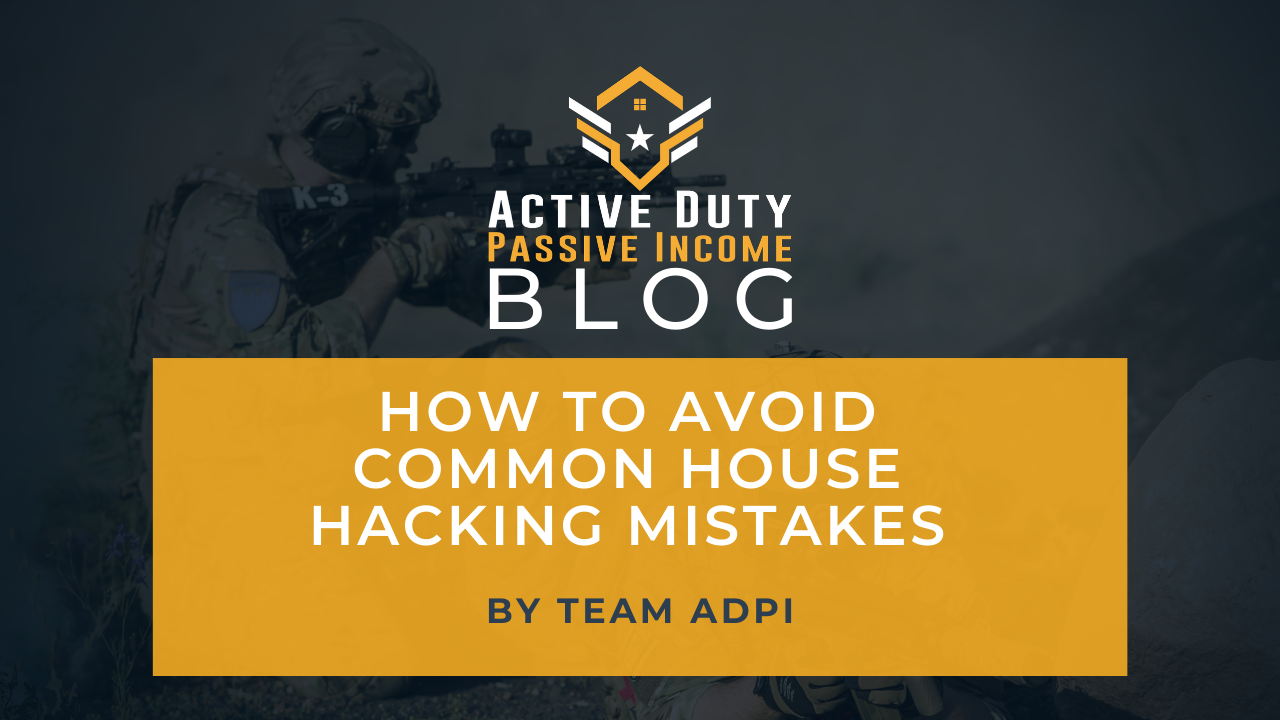What is House Hacking?
House hacking is a tried and true real estate investment strategy that is a great option for anyone starting in real estate investing. Generally, it is when an owner lives in a unit or bedroom of an investment property and has renters in the other units or bedrooms. The best part about this investment strategy is that it can greatly reduce or eliminate mortgage expenses.
So if you’re eager to learn more, here are four ways to avoid the most common mistakes in house hacking:
1. Buy Right!
A common mistake made by first-time house hackers is buying the most expensive house in the neighborhood. The thought process goes like this: “I’m going to be renting out part of my home, so I can afford a nicer place.” What they’re failing to ask is if they’ll find tenants to cover such expensive rent and if they’ll be able to later sell the property for a profit. If it’s the nicest place on the block, it’s likely to remain stagnant until the surrounding homes catch up. There are going to be exceptions, but this is a good guideline in house hacking investments.
Investors should make sure they’re staying within their means for BAH (basic allowance for housing). Buying property more than this allotted amount is risky. BAH has been set at this level based on criteria for this city, so use this as a guideline on what amount should be spent on a rental property.
2. Learn the Market
Don’t buy a property in a bad location. Getting a beautifully updated and large home in a terrible neighborhood is NOT a bargain; it’s a poor investment. Before making a rental purchase, here are some things to consider about location:
- Avoid bad school districts. Bad schools deter families or young couples (looking to start a family) from moving to the area, leaving a smaller pool of potential renters. Even if families were never a target renter, it’s still a good idea to avoid bad school districts for future resale.
- Find the path of progression and buy there. This may seem like a risky move if you’re not the patient type, but if you’ve done your research and have endurance for long-term payouts, buying real estate in the path of progression is a good decision. A dilapidated area near a football stadium may seem like a poor location, but if there are plans for that stadium to be renovated, property values should increase. Buying that property now before real estate prices rise is a bargain and a good investment.
- Look for good roadways and transportation. Properties with easy access to major highways and public transportation are sought after in many cities. It can also be good advertising when finding a tenant.
3. Don’t DIY Everything
Pinterest and HGTV can make the average person believe they’re do-it-yourself experts. Even though a home-improvement project is a good way to learn, it’s important not to bite off more than you can chew. There are certain things you shouldn’t do yourself: for electrical and plumbing work, hire certified professionals to ensure the home is up to code. As a veteran, you can utilize the VA Renovation loan to handle more complicated tasks like adding square footage, taking down structural supports, plumbing a new bathroom, or wiring new lights. Don’t worry, there’s still plenty of painting, caulking, and trimming you can do for your DIY fix.
4. Don’t Get Stuck, Get Creative!
If you find yourself not making as much profit as you hoped with your rental property, it’s time to get creative. Find different ways to utilize the features of your home–like renting out storage space in your garage, creating an Airbnb profile, putting solar panels on the roof, or growing vegetables in your backyard to sell at the local farmer’s market. If you have extra rooms, consider renting those out as well. With a little creativity, the possibilities are endless.
There’s much more to becoming a successful house hacker and these four tips are only enough to help get started. If you’re a veteran interested in learning more about house hacking, check out ADPI’s free book Military House Hacking today.








